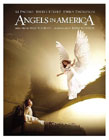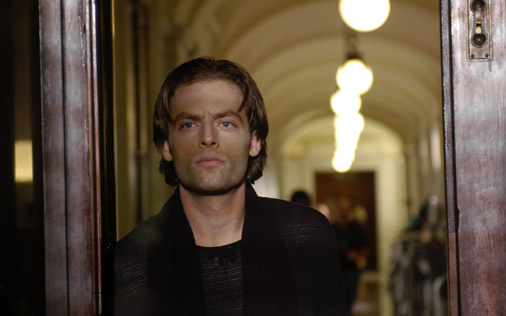 |

Tony Kushner's Plays
La Fin de la Baleine: An Opera for the Apocalypse, 1983
Tony Kushner's plays are not all gay in theme. Most of the early plays instead focus on political themes. Despite the fact that not all of the plays are about sexual identity or gay in culture, each one is still influenced by Kushner's own identity as a gay man, as he says in an article published by Gay City News. Kushner says, It was never my intention that gay issues would be my main topic, although I am currently writing a play that is about gay issues, but for me everything I write is written by a gay writer, so the underlying information is gay. I don't want to distract myself from my identity and I have a political perspective that is most shaped by being gay. That is inescapable. So if I write about loss, or change or empowerment, at the root is where I come from; and that is being gay. ("Kushner's New Winning Streak" 3)The plays that do deal explicitly with homosexuality and AIDS become a platform for Kushner's leftist political ideas through which he spreads his desire for an anti-homophobic, AIDS-aware culture. According to critic George Haggerty, "[Kushner's] plays are informed by a variety of progressive, intellectual, cultural, and political movements. He himself identifies his work as a 'theater of the fabulous,' a phrase that incorporates both his own queer political identifications and the overt theatricality of his plays" ("AIDS" 525). The most common theme throughout Kushner's work is loss. He is quoted in the article "Kushner's New Winning Streak" as saying: "...that often I feel as if the biggest theme that runs through my work is loss...Maybe that has to do with coming of age in the most terrifying part of the AIDS crisis, well, at least so far--at least before there was any protocol for keeping people alive. Maybe it became indelible that loss was a part of understanding life" (3). The theme of loss is certainly apparent in Angels in America. The play focuses on six characters all trying to survive the 1980s AIDS crisis. One such character is Prior, a gay man dying from AIDS who, during his struggle, becomes a prophet. Prior's philosophical discussions with the angel America reflect the conflicts in political views and society's views of the gay culture, specifically those conflicts which revolve around people who are victims of AIDS. Prior's lover, Louis, finds he cannot deal with Prior's sickness and leaves Prior to die alone. This storyline and two others intertwine and come together in the end to leave behind Kushner's message of hope and the importance of acceptance.
Image found at http://www.hbo.com/films/angelsinamerica/photos/index.html Critic Michael Broder feels that, "[e]pic in scope as well as in design, Angels in America goes farther than any other contemporary gay literary work in its use of gay characters and traditionally gay themes to examine a complex political, cultural, and historical reality that transcends gay ghettos and embraces all of American society" (1). |


